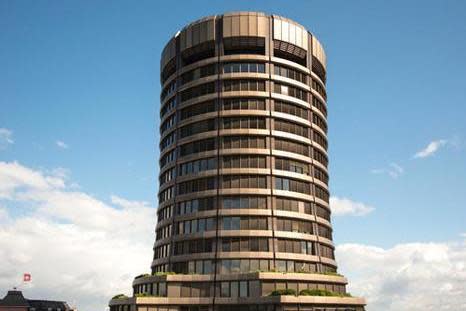Hamish McRae: Four ways to avoid another plunge into world recession

Google “recession” and huge amounts of stuff come up. Some of the comments tie the danger of recession to the risks of the trade war getting out of control.
Others are associated with the US tax cuts, the idea being that these will boost demand this year and next, but will cause the economy to overheat and then experience some sort of crash in 2020. Others focus on the artificial nature of the present expansion, a decade of very loose monetary policy, and the consequent inflation of asset prices. Still others fret about digital currencies — the list goes on and on.
If there is a common theme here, it is that the present growth phase is drawing towards some sort of close, though there is little agreement on the timing or the trigger, and none at all about the severity of what is to come.
At a time like this it is always best to try to stand back and put this moment in its historical context. The best people at doing that are the economics team at the Bank for International Settlements in Basel, Switzerland. It was founded in 1930 to help sort out reparation payments after the First World War, that now acts as a central banker to the central banks, passing funds (and gold) between them. Every year it produces an economic commentary with its annual report, which I have found gives the coolest, clearest analysis of the world economy and international finance. It gave the best warning of the dangers in the run-up to the crash and subsequent recession of 2008/09.
Its latest report is just out. What is the message?
In a nutshell, it is that this is a solid expansion but the longer it goes on the greater the dangers of things ending badly. The central banks stopped the financial crisis turning into a global recession, but at the cost now, 10 years on, of huge indebtedness and inflated asset prices. Two years ago much of the comment was too gloomy, and the expansion has carried on strongly. Now, just as many economies are reaching their limits of capacity, governments are easing fiscal policy. That is happening not just in the US but in three quarters of the developed economies. The implication is that this is not a great idea at this stage of the economic cycle.
Triggers for a downturn? One would be the trade war worsening. Another could be a sharp rise in long-term interest rates — bond yields — in the US and elsewhere. And a third might simply be investors becoming worried about risk and pulling funds out of perceived risky investments.
Can governments and central banks minimise the dangers? The BIS thinks they can. Four things need to be done.
First governments need to step up structural policies to make their economies more efficient. These are things like labour market policies to encourage more people into work, curbing anti-competitive action by companies, improving training and so on. The more efficient your economy can become, the longer the expansion can continue without hitting capacity barriers.
Second, they should strengthen the financial sector. Third, they need to work at reducing the public debt accumulated as a result of the recession.
And finally they need to tighten monetary policy and get interest rates up. But they have to do this carefully because of the indebtedness of many sectors. What should the rest of us make of all this?
Well, it is all eminently sensible, but as the BIS warns it is quite a narrow path to tread. Governments and central banks will make mistakes. As it points out: “Financial market ructions will no doubt occur. Higher volatility per se is not a problem as long as it remains contained; it is actually healthy whenever it helps inhibit unbridled risk-taking.”
Ructions. That’s a good word. The BIS is not telling when there will be a market crash or correction. It is warning us there need to be crashes to keep the system sweet. The idea that if things go wrong the central banks will step in and print the money is unhealthy and corrupting.
It has a special chapter on cryptocurrencies. Good idea? It notes a recent comment by the bank’s general manager that they were a “combination of a bubble, a Ponzi scheme and an environmental disaster…” Cryptocurrencies are not important enough to wreck the world economy, at least I don’t think so. But they may wreck the finances of a lot of people. Warnings do not come much starker than that.

 Yahoo News
Yahoo News 